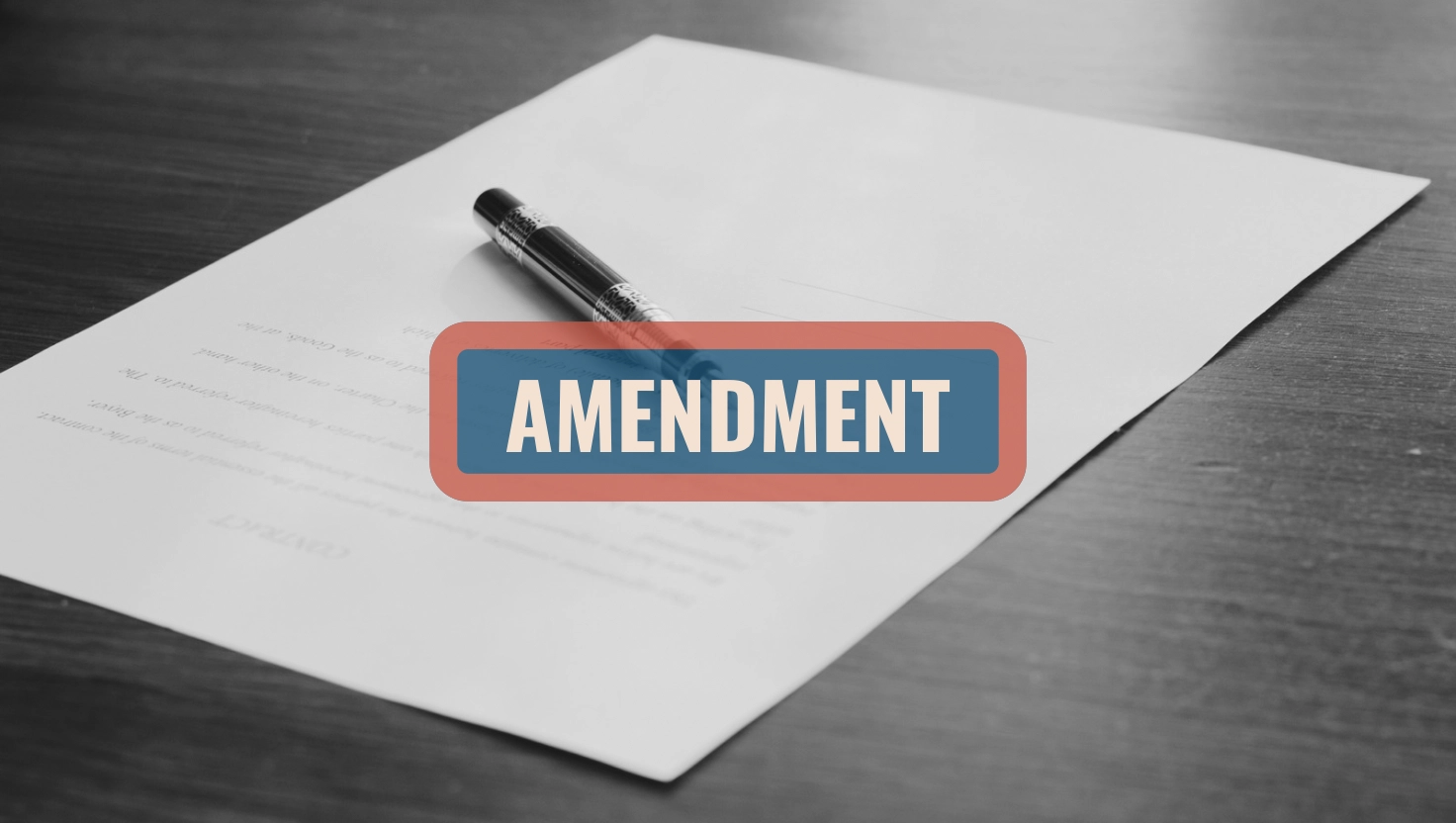You find a bill you love. Maybe it protects parental rights, reduces government overreach, or addresses something you’ve been passionate about for years. You read the bill cover to cover and the language feels right. You’re ready to support it.
Wait! Before you support it, internalize this reality: a bill will be amended.
Let it sink in because this reality changes how you approach bill advocacy.
Let’s begin with some basics. Bills move through committees. They get second readings, third readings. Along the way, they accumulate amendments. Think of this like a clean garbage truck starting its route, collecting garbage at every stop. By the final stop, the truck is filled with junk. Most people accept this as standard legislative practice. The acceptance doesn’t eliminate the risk or reduce the damage. Yet legislators frame these additions differently. They talk about “refining” bills and “working on the language.” It sounds reasonable, even necessary. The messaging obscures what’s actually happening which is the clean bill is collecting junk.
Amendments rarely make bills better for citizens. More often, they water down the bill, create loopholes, or shift benefits toward special interests with the resources to influence the process.
Think about buying a house. You review the contract line by line and feel satisfied with the terms. Then a few days pass before you sign it, and the seller amends the contract. You sign anyway, never reading the amended terms. After you’ve signed on the dotted line, you discover that you’re responsible for expenses that were the seller’s responsibility. Too late. You signed, and that burden now falls on you.
Bills work the same way. The seller amended the house contract to benefit themselves at your expense. Special interest groups operate with identical intent when they approach legislation. They have the access, the lobbyists, the money, and the hours to practically live at the statehouse. They are all about ensuring their bill and amendments become law. By the time that bill reaches a final vote, it looks nothing like the version you initially supported.
You are not alone in missing these changes. Most citizens never notice. They see that their favorite bill passed and assume victory. Meanwhile, they’ve helped push and accept legal obligations based on language they never read.
This is why we at ConservaTruth help folks learn the skill of version awareness. We taught this during our recent South Carolina Bill Reading Boot Camp. If you want to be notified for the next one, please sign up for the waitlist, which you can find HERE.
Version awareness helps you understand when bills you support morph into something else entirely. It’s a skill you need to master before advocating for a bill.
When someone says they support a bill, the first question should be: which version? The original text filed in January? The committee substitute from March? The amended version that passed the House in April?
These distinctions determine fundamentally different legal outcomes. A bill that started as a proposal to provide more educational options for parents was quickly changed into a bill that added more regulations to how parents choose. Income tax reform was amended to include higher taxes for a certain group of individuals. The bill proposing to break up a state agency transformed into a bill that created more government.
The bill number and marketing message stay the same, and the title barely changes. Yet the substance transforms into something fundamentally different from what citizens originally supported.
People have been conditioned to trust the process. There’s an assumption that if a bill is moving forward, things are going well. Legislators reinforce this by speaking optimistically about progress and collaboration.
Amendments represent real risk. When you support a bill without tracking its versions, you essentially sign a contract without reading the fine print. Worse, you’re signing a contract that keeps changing, but you’ve only seen the first draft.
Consider what happens when a bill becomes law. You’re legally bound to follow it, and the state can enforce it. If that law contains provisions you never agreed to, provisions added through amendments you never read, you still have to comply. There’s no opt-out just because you preferred an earlier version.
So what do you actually do about this?
The process sounds exhausting because it is. Tracking every version of every bill you care about takes time. Most people don’t have lobbyists on payroll or staff to monitor the statehouse. Special interests win for exactly this reason.
You don’t need to track everything. Focus on what matters to you.
Start with reading. Every bill you consider supporting should be read completely, beginning to end. No skimming, no summaries from advocacy groups, no relying on legislators’ headline announcements. You need to know exactly what the original language says.
Next, understand the concerns embedded in that original text. Bills are complex documents with technical language designed to interact with existing law. There are always potential issues worth examining. Learning to spot these problems before they become permanent law takes practice.
Then talk to the bill’s sponsor. Ask directly about potential amendments. What changes are being discussed? Who’s requesting them? Why? Most of the time, you won’t get a clear answer. Legislators themselves often don’t know what amendments are coming because they’re not the ones writing them. The actual authors of the bill, typically lobbyists or executive branch staff, are the ones proposing changes. Asking the question puts the sponsor on notice that someone is paying attention.
Finally, track every version. When you see a bill amended, read the new version. Compare it to the original. Identify what changed and why those changes matter. This is version awareness in practice.
These steps represent the bare minimum for responsible advocacy. Without them, you’re supporting legislation that will evolve into a law that will make your freedoms vanish.
Bad bills become bad laws, and those laws are extraordinarily difficult to repeal. The legislative process makes it far easier to pass something than to undo it later. Once language gets codified, it takes years of sustained effort to remove it.
Version awareness matters because catching problems during the amendment process gives you a chance to push back before the damage becomes permanent. Waiting until after passage means you’re stuck with whatever made it through.
We need more people reading bills and analyzing them. More people highlighting concerns and organizing opposition to harmful amendments. Individual citizens can’t match the resources of organized special interests. This has to become a collective effort. Large numbers of informed citizens tracking versions and speaking up can shift the balance.
The goal is to ensure that citizens are aware of what’s being changed, why, and who benefits. Then we can make informed decisions about which ones need to be stopped.
Start paying attention to versions. Make it a habit. Because the bill you think you’re supporting might not be the bill that becomes law.
Disclaimer: The views expressed in this article are those of the author and do not constitute legal or professional advice. ConservaTruth assumes no liability for any actions taken based on this content. Read more.

Subscribe to ConservaTruth's Email Newsletter for curated insights on South Carolina's legislative activities and conservative viewpoints, delivered straight to your inbox! With vetted and easy-to-understand information, our newsletter empowers you to become an informed and engaged citizen, actively participating in safeguarding our cherished Constitutional values. Don’t miss out on crucial updates—join our community of informed conservatives today!





Comments